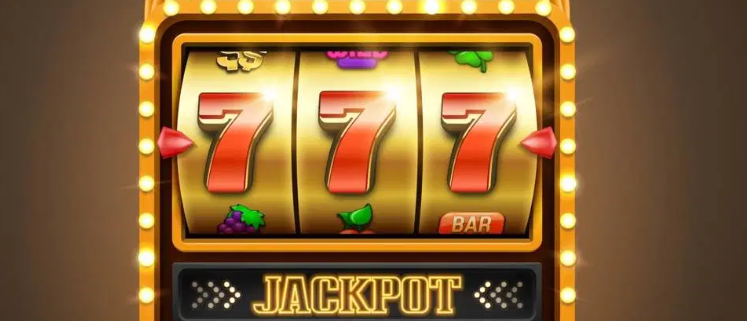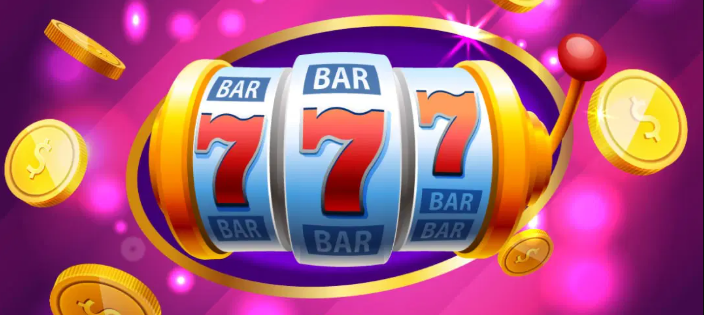Fair Play & RTP Transparency
When you step into the world of online slots, understanding how games operate behind the scenes becomes essential for your gaming experience. This comprehensive guide explores the mechanisms that ensure every spin you make is genuinely random and operates according to published standards. We’ll examine the regulatory framework protecting Australian players, the independent organizations that verify game integrity, and the practical steps you can take if something doesn’t feel right. By the end of this article, you’ll have a clear picture of how fairness and transparency work together to create a trustworthy gaming environment. Understanding fair play principles helps you choose trustworthy online casinos. Understand Fair play principles that keep online slots transparent.
🇦🇺 Australian player protection: Australia has some of the strictest gambling regulations globally. All licensed operators must meet consumer protection standards that exceed those in many other jurisdictions, including mandatory problem gambling tools, strict advertising rules, and transparent dispute resolution processes.
Regulatory overview and player rights in Australia
The Australian gambling landscape operates under strict oversight designed to protect players while maintaining industry standards. Multiple layers of regulation work simultaneously to ensure that every slot machine, whether in a physical venue or online platform, meets rigorous fairness criteria. These regulations aren’t just bureaucratic paperwork—they represent real protections that give you confidence when placing your bets. Understanding this framework helps you recognize which operators take their obligations seriously and which ones might cut corners. Licensed operators must demonstrate their commitment to fair play through regular audits.
Key Australian gambling regulators
Several organizations share responsibility for overseeing gambling activities across Australia, each with specific jurisdictions and powers. The primary regulatory bodies include state and territory gaming commissions, which license and monitor operators within their geographical boundaries. These commissions conduct regular audits, investigate complaints, and have the authority to impose penalties or revoke licenses when operators fail to meet standards. Their presence ensures that someone is always watching to make sure games perform as advertised. Fair play guarantees that every player has an equal chance of winning based on game mathematics.
📋 Regulatory fact: The Northern Territory was the first Australian jurisdiction to license online gambling in 1996, creating a framework that many international jurisdictions later adopted. Today, it remains one of the few Australian territories where international operators can obtain local licenses.
Rights of players regarding fair play
As a player in Australia, you possess specific rights that operators must respect throughout your gaming experience. The most fundamental right is access to accurate information about how games work, including published return-to-player percentages and the mathematical models underlying each game. Operators cannot hide this information or provide misleading statistics about your chances of winning. This transparency requirement extends to bonus terms, withdrawal conditions, and any other factors that might affect your ability to access your funds. Casinos that prioritize fair play display certification seals from independent testing laboratories.
⚖️ Your legal rights: Australian consumer law protects you against misleading conduct, unfair contract terms, and unconscionable business practices. If an operator advertises a game feature or payout that doesn’t materialize, you may have grounds for a complaint under the Australian Consumer Law, not just gaming regulations.
How regulations affect slot RTP
Regulatory requirements directly influence the return-to-player percentages that operators can offer on their slot machines. In most Australian jurisdictions, gaming regulators establish minimum RTP thresholds that all approved games must meet or exceed. These minimums typically range between 85% and 87% for physical venues, though online platforms often offer higher percentages due to lower operational costs. The regulations prevent operators from installing games that would drain player bankrolls at an unreasonable rate, creating a baseline level of value for your entertainment spending. The fair play definition encompasses honest game outcomes, transparent terms, and timely payment of winnings.
💡 Cost comparison: Physical venues have overhead costs like rent, staff, and maintenance that online casinos avoid. This is why land-based slots typically offer 85-92% RTP, while online slots commonly range from 94-97%. The difference directly reflects operational efficiency, not unfairness.
Independent testing and certification bodies
Beyond government regulators, specialized organizations exist solely to verify that gambling products operate fairly and according to their specifications. These independent auditors serve as a crucial bridge between operators, game developers, and players, providing unbiased verification that games perform as advertised. Their involvement adds an extra layer of accountability that goes beyond basic regulatory compliance. Most reputable operators voluntarily submit their games for third-party testing even when regulations don’t strictly require it, recognizing that certification builds player trust. A comprehensive fair play definition includes both technical fairness in game mechanics and ethical business practices.
List of recognized auditors
Several organizations have established themselves as the gold standard for gambling product testing and certification. eCOGRA (eCommerce Online Gaming Regulation and Assurance) stands among the most recognized names, offering comprehensive testing services and the “Safe and Fair” seal that appears on many online gambling platforms. Founded in 2003, this London-based organization has tested thousands of games and helped establish industry best practices for verification.
iTech Labs, based in Australia, specializes in testing and certifying online gaming systems and has received accreditation from numerous international regulators. Their testing covers random number generators, game mathematics, and cybersecurity features. Gaming Laboratories International (GLI) operates across six continents and provides testing services for both land-based and online gambling products. Their certification carries weight with regulators worldwide, making games they approve more easily licensed across multiple jurisdictions.
Additional respected auditors include:
• Technical Systems Testing (TST), which focuses on North American markets
• BMM Testlabs, with over 40 years of experience in gaming testing
• Gaming Associates, offering both testing and consulting services
• NMi Gaming, specializing in European market compliance
• SIQ (Slovenian Institute of Quality and Metrology), serving Eastern European markets
Each organization maintains accreditation with various regulatory bodies and follows internationally recognized testing standards. Their reports carry legal weight and often form the foundation of regulatory approval processes. New players often ask what is fair play before making their first deposit at an online casino.
🏆 iTech Labs advantage: As an Australian-based testing lab, iTech Labs understands local regulatory requirements intimately. They’ve certified over 1,500 games and test for compliance with standards from 275+ gaming jurisdictions worldwide, making them particularly valuable for operators serving Australian players.
How testing ensures accuracy and fairness
The testing methodology employed by certification bodies addresses multiple dimensions of game operation simultaneously. Mathematical verification forms the foundation, with auditors examining the probability models underlying each game outcome. They calculate theoretical RTP percentages based on the game’s paytable and feature mechanics, then verify that the actual programming implements this model correctly. Any discrepancy between the theoretical model and the practical implementation raises red flags that must be resolved before certification can proceed. Learning what is fair play in gambling helps you recognize which operators treat customers honestly.
🔬 Testing depth: Modern certification involves running 15-20 different statistical tests on RNG output, including chi-square tests, frequency analysis, gap tests, poker tests, runs tests, and serial correlation tests. Games must pass all tests within statistically acceptable ranges, typically with 95% or 99% confidence levels.
Reading and interpreting certification reports
Certification reports contain technical details that might seem overwhelming at first glance, but understanding key sections helps you evaluate game legitimacy. Most reports begin with an executive summary stating whether the game passed testing and any conditions attached to that approval. This section provides the bottom-line conclusion without requiring you to wade through technical specifications. However, examining additional sections gives you deeper insight into exactly what was tested and how thoroughly. Regulatory bodies provide a clear fair play definition that licensed operators must follow.
📄 Report sections to check: Look for the certification date (should be recent), the scope of testing (RNG, math model, software integrity), the certified RTP percentage, volatility rating, maximum win potential, and any noted exceptions or conditions. Reports older than 2-3 years may indicate the game hasn’t been re-tested with updated standards.
Resolving player disputes
Even with comprehensive regulations and independent testing, situations occasionally arise where players believe they’ve been treated unfairly. Perhaps a game froze during a bonus round, winnings weren’t credited properly, or withdrawal requests face unexplained delays. Knowing how to address these concerns effectively protects your interests and helps resolve problems before they escalate. Most disputes stem from misunderstandings rather than genuine operator misconduct, making clear communication your first and most important tool. Understanding what is fair play means knowing your rights as a player and how games should operate.
Escalation steps for complaints
Your first contact should always be the operator’s customer support team, preferably using a written channel like email or live chat that creates a record of your communication. Clearly explain the issue, when it occurred, and what resolution you’re seeking. Many problems get resolved at this stage, particularly technical glitches or simple misunderstandings about terms and conditions. Give the support team a reasonable opportunity to investigate and respond—typically 24 to 48 hours for non-urgent matters.

If customer support doesn’t resolve your concern satisfactorily, request escalation to the complaints department or customer relations manager. Licensed operators must maintain formal complaints procedures, and asking to follow this process signals that you’re serious about pursuing the matter. Submit your complaint in writing, clearly referencing any previous support tickets or correspondence. Most jurisdictions require operators to acknowledge complaints within a specific timeframe and provide substantive responses within 7 to 14 business days. The fair play meaning extends beyond random outcomes to include transparent communication and player protection.
When internal complaints procedures fail to produce acceptable outcomes, escalation to third-party mediators or regulatory authorities becomes necessary. Consider the following sequence:
1. Contact any alternative dispute resolution service the operator subscribes to
2. File a complaint with the licensing authority overseeing the operator
3. Report the issue to consumer protection agencies in your jurisdiction
4. Seek advice from gambling counseling services that may offer advocacy
5. Consider legal action for significant amounts or clear contractual breaches
Each step requires progressively more formal documentation and may involve longer resolution timeframes, but persistence often produces results when you have legitimate grievances. Understanding fair play meaning helps you evaluate whether a casino operates with integrity.
📞 Australian resources: The National Gambling Helpline (1800 858 858) provides free, confidential support 24/7. While primarily focused on problem gambling, they can also advise on dispute resolution and connect you with appropriate regulatory contacts for your jurisdiction.
Documentation needed for dispute resolution
Successful dispute resolution depends heavily on your ability to provide clear evidence supporting your claims. Start gathering documentation as soon as you recognize a problem, as some evidence may become unavailable later. Screenshot every relevant screen showing the disputed transaction, game state, error message, or account balance. Capture not just the main game window but also any timers, bet amounts, or feature indicators that might prove relevant to your claim.
Preserve all communication with the operator, including email correspondence, chat transcripts, and notes from phone conversations documenting who you spoke with and what was discussed. If the operator provides reference numbers for support tickets or complaints, record these carefully as they help tracking and follow-up. Your account history and transaction logs form critical evidence, so download these records regularly rather than relying on operator systems to maintain them indefinitely.
Additional documentation that strengthens your case includes:
• Bank statements showing deposits and withdrawals
• Bonus terms and conditions as they appeared when you accepted them
• Game rules and RTP information displayed at the time of play
• Screenshots showing advertised promotions or special offers
• Timestamp information proving when events occurred
• Third-party verification if others witnessed the issue
Organize this documentation chronologically and create a clear narrative explaining what happened, when it happened, and why you believe it violates fair play principles. This preparation saves time and demonstrates that you’ve approached the matter seriously, increasing the likelihood of a favorable resolution.
💾 Screenshot tip: Use tools like Windows Snipping Tool, Mac Screenshot (Cmd+Shift+4), or browser extensions that capture entire scrollable pages. Save screenshots with descriptive filenames including the date and time. Cloud storage services like Google Drive or Dropbox ensure you don’t lose evidence if your device fails.
Timeframes and expected outcomes
Dispute resolution timeframes vary considerably depending on the complexity of your claim and which level of escalation you’ve reached. Simple technical issues often resolve within days once properly reported, particularly when the problem lies with obvious system glitches rather than policy disputes. Account verification delays or routine withdrawal processing typically take one to two weeks to resolve through internal complaints procedures, assuming you’ve provided all required documentation. Grasping the RTP meaning allows you to compare different slots and choose games with better returns.
More complex disputes involving substantial sums or allegations of serious misconduct require longer investigation periods. Regulatory complaints typically take 30 to 90 days for preliminary investigation, with additional time needed if the regulator launches a formal inquiry. Alternative dispute resolution services usually operate on slightly faster timelines, with many aiming to provide decisions within 6 to 8 weeks of receiving complete documentation from both parties.
Remember that not all complaints result in findings in your favor. Sometimes investigation reveals that the operator acted correctly according to their terms or that the outcome resulted from randomness rather than malfunction. Accepting these results when evidence supports them demonstrates maturity and helps maintain your credibility for future legitimate concerns.
⏱️ Realistic expectations: While frustrating, dispute resolution takes time because regulators must investigate both sides thoroughly. Keep detailed records of all communication dates and follow up professionally if responses are delayed beyond stated timeframes. Persistence combined with courtesy typically yields better results than aggressive demands.
Understanding fairness seals and logos
Visual certification marks serve as quick-reference indicators that a game or platform has undergone independent verification. These seals and logos appear prominently on websites, in game interfaces, and in promotional materials, signaling to players that third parties have examined the operation. However, not all seals carry equal weight, and some unscrupulous operators display fake or expired certifications hoping players won’t verify their authenticity. Developing the ability to distinguish legitimate certification from marketing decoration protects you from platforms that talk about fairness without actually delivering it. The RTP meaning refers to the theoretical percentage of wagered money that a game returns to players over time.
Identifying authentic seals on games
Legitimate certification seals share several characteristics that help distinguish them from decorative imitations. Authentic seals typically function as clickable links or buttons that direct you to verification pages on the certifying organization’s website. These verification pages display current certification status, the scope of testing performed, and the dates coverage began and expires. If clicking a seal does nothing or redirects to the operator’s own website rather than an independent verifier, treat it with skepticism.
🔍 Verification method: Right-click any certification seal and select “Copy link address” or “Inspect element.” Legitimate seals link directly to the testing lab’s domain (ecogra.org, itechlabs.com, gaminglabs.com). If the link points to the casino’s own domain or doesn’t exist, the seal is likely fake.
What each seal represents
Different certification seals address distinct aspects of gambling operations, and understanding these specializations helps you evaluate platform trustworthiness comprehensively. RNG certification seals specifically verify that random number generators produce unpredictable, unbiased outcomes. Organizations like iTech Labs and GLI focus heavily on this technical verification, testing millions of outcomes for statistical anomalies. Their seals assure you that game results aren’t predetermined or manipulated but genuinely random within the constraints of the game’s mathematical model.
🏅 eCOGRA’s comprehensive scope: Unlike labs that only test RNG systems, eCOGRA’s “Safe and Fair” seal covers three areas: fair gaming (RNG and RTP), player protection (dispute resolution and responsible gambling tools), and responsible operator conduct (financial stability and payout speed). It’s one of the most comprehensive certifications available.
How to verify fair play online
Verifying certifications requires taking proactive steps rather than simply trusting displayed seals at face value. Start by identifying every seal displayed on the platform and listing the certifying organizations. Visit each organization’s official website directly by typing their URL into your browser rather than clicking links from the gambling site. This precaution ensures you reach the legitimate verifier rather than a spoofed website designed to provide false verification.
Cross-reference certifications against regulatory requirements for the jurisdiction where the operator holds licenses. Licensed platforms should display not only independent testing certificates but also their license numbers and issuing authorities. Verify these licenses through the regulatory body’s public database, confirming that the license remains active and in good standing. This multi-layered verification approach creates a comprehensive picture of platform legitimacy.
Verification checklist:
✓ Confirm all displayed seals link to legitimate verifier websites
✓ Search certifier databases for the operator and specific games
✓ Check certification dates to ensure current validity
✓ Verify gaming licenses through regulatory databases
✓ Review any enforcement actions or complaints filed against the operator
✓ Examine whether certification scope matches platform claims
✓ Look for consistent information across multiple sources
Taking these verification steps before depositing money protects you from platforms that display impressive-looking credentials without actual substance. While the process requires some time investment, it’s far less frustrating than dealing with disputes later because you chose an operator with questionable fairness practices. Remember that transparency in allowing verification itself indicates an operator confident in their legitimate operations, while obstacles to verification often signal problems worth avoiding.
🌐 Quick verification sites: Websites like AskGamblers, CasinoMeister, and ThePogg maintain databases of licensed operators and known rogue casinos. While not official regulators, these watchdog sites aggregate player complaints and regulatory actions, providing a useful starting point for researching an operator’s reputation.
🎯 Final protection tip: Before depositing significant amounts, make a small test deposit and withdrawal. This verifies that the operator processes transactions smoothly and honors withdrawal requests. If they create obstacles for a $20 withdrawal, imagine the difficulty with a $2,000 win. A smooth test transaction is one of the best indicators of a trustworthy operator.










